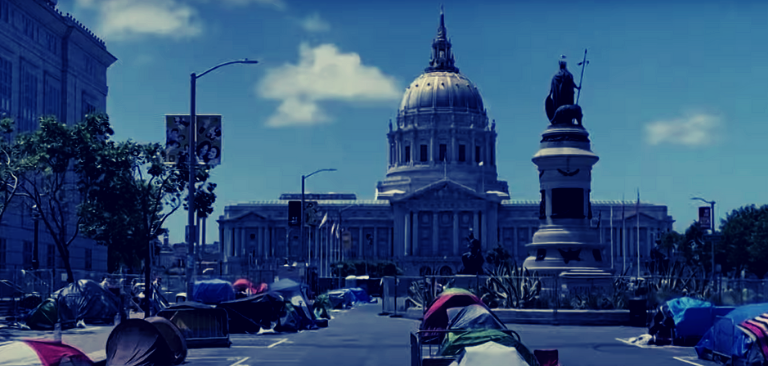California Democrats have gone out of their way to punish users on social media platforms expressing their doubts or criticism of the US voting system allowing and, as of late, expanding the right of voters to mail-in their ballots in the November presidential vote.
In another era, we might be tempted to call this type of thing and the stern language its expressed in as something coming from “the Thought Police”:
“If you’re putting out tweets, Facebook posts or using social and other types of media to intentionally mislead voters about their right and ability to vote by mail, that’s now a crime, and it’s my hope local DA’s and the state attorney general will go after violators the moment they see them,” Democrat Henry Stern said of the legislation, SB 739, that was signed into state law by the California governor on Friday.
Read the bill here.
“A person is guilty of a misdemeanor who, with actual knowledge and intent to deceive, causes to be distributed or distributes, including distribution by mail, radio or television broadcast, telephone call, text message, email, or any other electronic means, including over the Internet, literature or any other form of communication to a voter that includes any of the following:
(1) The incorrect location of a vote center, office of an elections official, satellite office of an elections official where voting is permitted, vote by mail ballot drop box, or vote by mail ballot drop-off location.
(2) False or misleading information regarding the qualifications to vote or to register to vote.
(3) False or misleading information regarding the qualifications to apply for, receive, or return a vote by mail ballot.
(4) False or misleading information regarding the date of an election or the days, dates, or times voting may occur at a place described in paragraph (1).”
The expansion of the right afforded to voters to cast their ballots in this way is linked to the coronavirus epidemic – that is expected to lead to “a record number” of residents of this US state exercising their voter right in this way. At the same time though – the right of everyone else to be speaking out on the internet about this seems to be shrinking.
And such is the level of journalistic standards upheld by CBS Los Angeles that they don’t even bother presenting the other view – namely, why is the “vote by mail” thing even controversial?
Instead, we only get the usual talking point.
Usually – or so we are led to believe – bickering and bitter arguments over some of the core mechanisms of organizing a fair and democratic election are merely the growing pains in very young democracies; for that reason, to see it play out prominently in the run-up to the US presidential vote this November is somewhat startling.
And we are seeing it play out over and over again in campaign politics and media when it comes to the issue of mail-in ballots and possible ensuing election rigging.
President Trump has not been known for mincing his words when it comes to the subject of expanding this kind of voting in November’s election. His main concern is that mail-in voting would “extend” elections beyond acceptable democratic standards, into weeks or even months after election day – implying that space would be created for election fraud, i.e., the “counting” until the votes had been counted “just right.”













